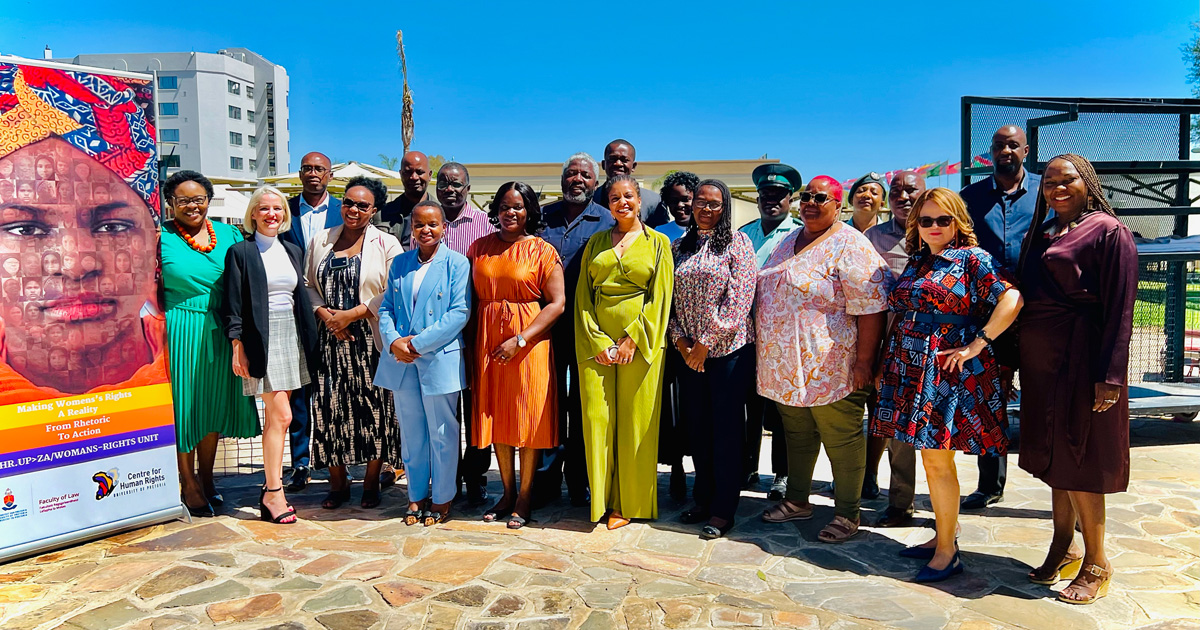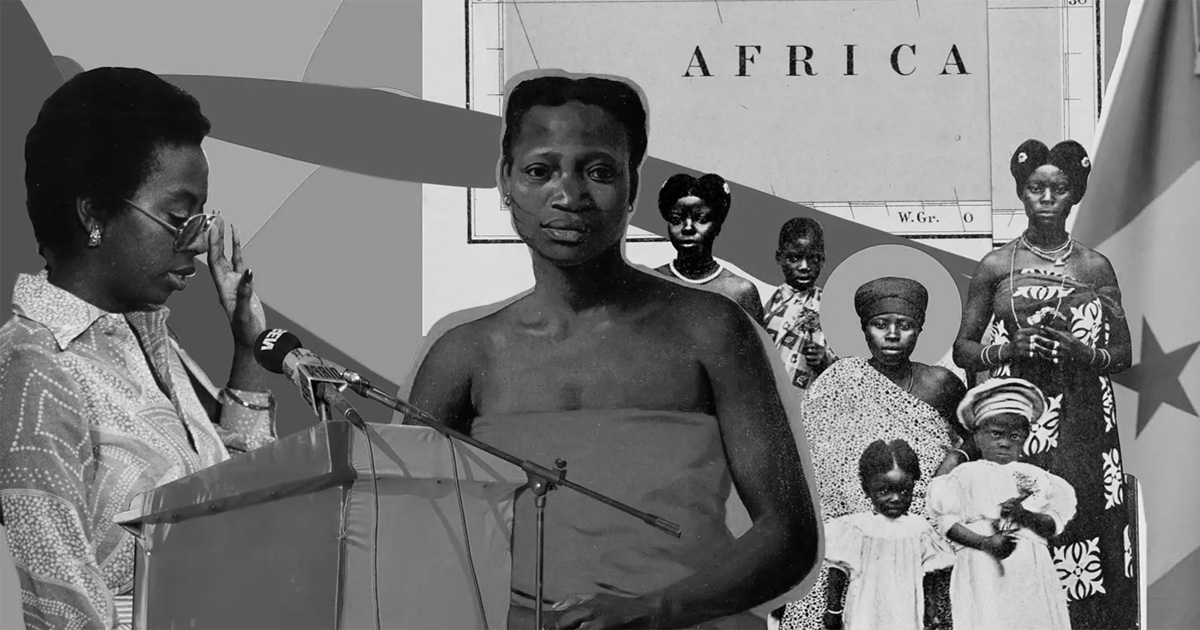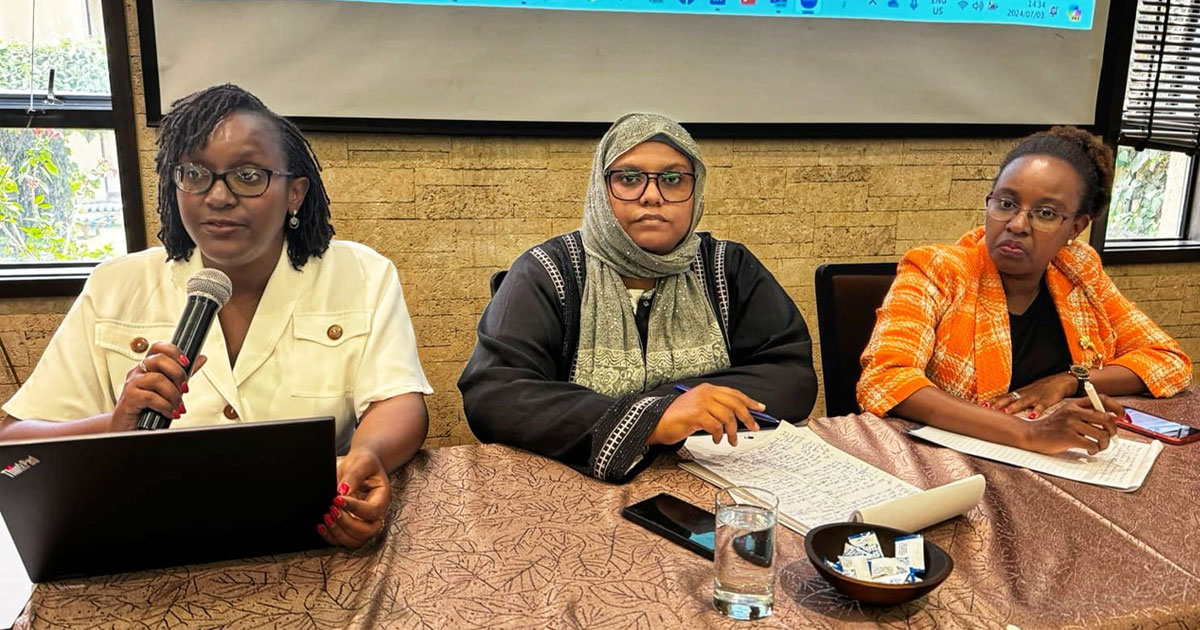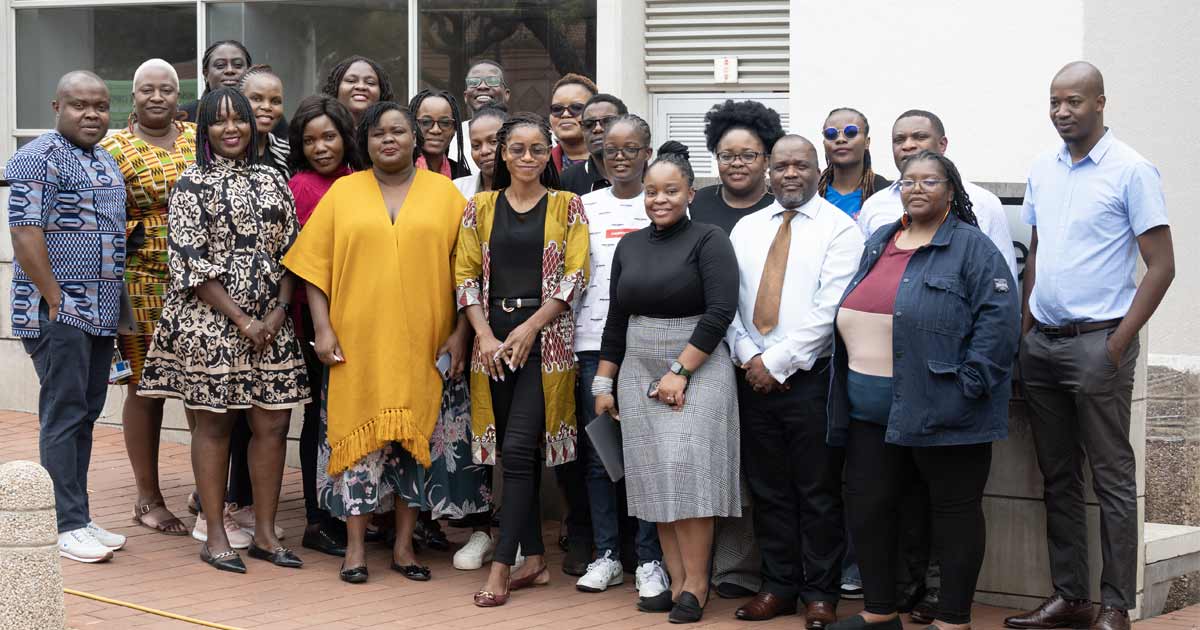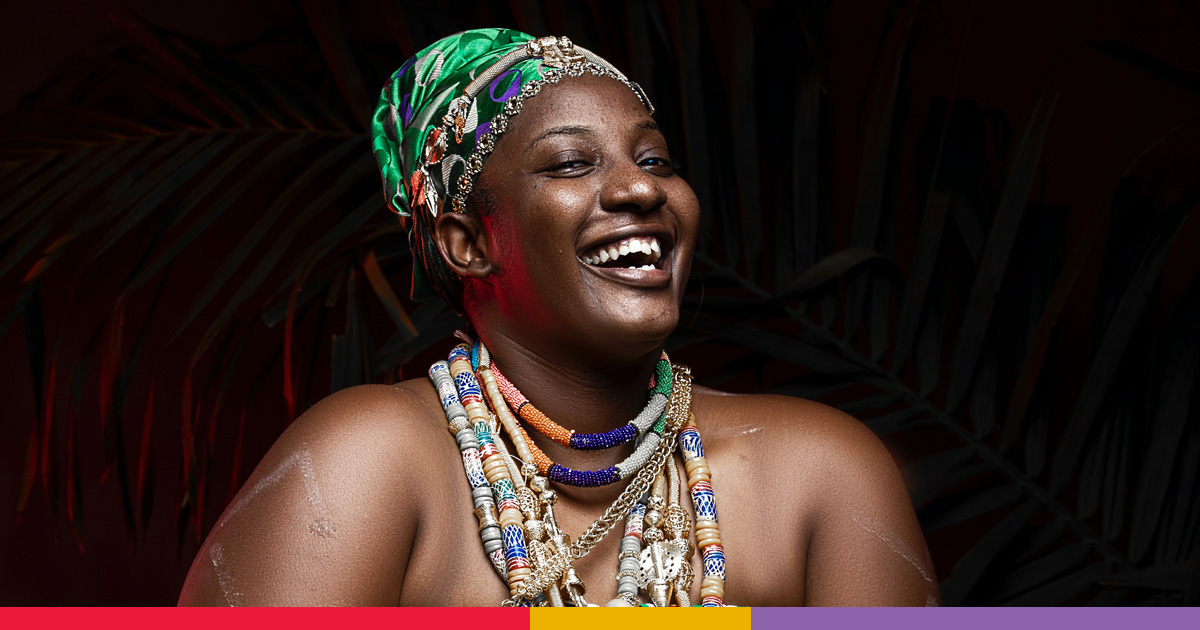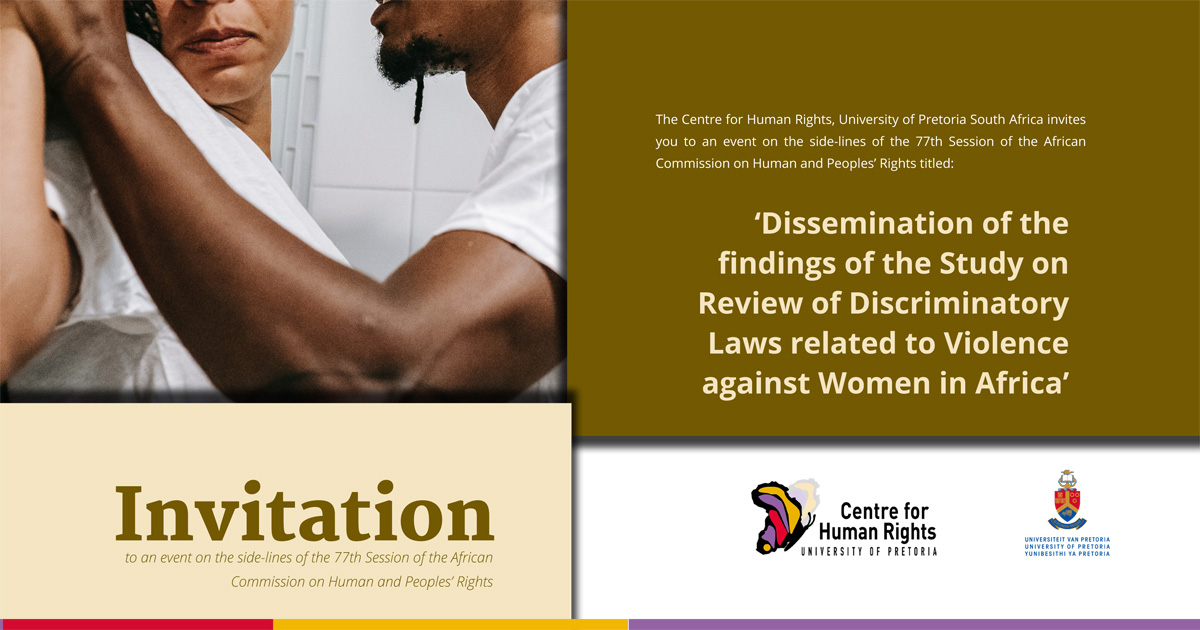- Details
On 12th and 14th of November 2024, the Centre hosted two pivotal meetings in Windhoek, Namibia, focusing on advancing the country’s human rights landscape under the African Charter on Human and Peoples’ Rights (African Charter) and the Protocol to the African Charter on Human and Peoples’ Rights on the Rights of Women in Africa (Maputo Protocol). The two separate gatherings brought together civil society organisations (CSOs) and representatives of the State Reporting and Follow-up Inter-ministerial Committee of Namibia including representatives from the Ministry of Gender Equality, Poverty Eradication and Social Welfare, the Ministry of Justice and the Ministry of Defence.
- Details
The Centre for Human Rights, Faculty of Law, University of Pretoria, in collaboration with the government of Côte d’Ivoire, Ministry of Women, the Family and Children, hosted a Francophone Regional Training on State Party Reporting under the African Charter on Human and Peoples’ Rights (African Charter) and the Protocol to the African Charter on Human and Peoples’ Rights on the Rights of Women in Africa (Maputo Protocol). The training was held from 28 to 30 October 2024 in Abidjan, Côte d’Ivoire. The training brought together government and civil society representatives from Côte d’Ivoire, Cameroon, the Central African Republic, Guinea Conakry, the Democratic Republic of Congo and Mali. The workshop highlighted the importance of state party reports in assessing the progress made by African nations in fulfilling their commitments to human rights, specifically concerning women's rights under the Maputo Protocol.
- Details
On 17 October 2024, the Centre for Human Rights, Faculty of Law, University of Pretoria collaborated with other stakeholders to commemorate 25 years of the Office of the Special Rapporteur on the Rights of Women in Africa (Special Rapporteur). The event was hosted on the side-lines of the 81st Ordinary Session of the African Commission on Human and Peoples’ Rights in Africa taking place in Banjul, the Gambia. The other partners of the event were IPAS and Equality Now.
- Details
The Centre for Human Rights (CHR), in partnership with the International Commission of Jurists (ICJ), hosted a Judicial Colloquium on Sexual and Reproductive Health Rights (SRHR) of women and girls in Nairobi, Kenya, on the 2nd and 3rd of July 2024. The event brought together judicial officers from Southern and Eastern African Countries.
- Details
The Centre for Human Rights at the University of Pretoria organized a webinar on 21 June 2024 to discuss and assess implementation of Comprehensive Sexuality Education (CSE) in South Africa. The aim of the webinar was to assess CSE delivery in South Africa through Life Orientation (LO) subject in schools.
- Details
We, the undersigned organizations, write regarding the ongoing developments relating to the repeal of the Sections of the landmark Women’s (Amendment) Act of 2015, which criminalizes Female Genital Mutilation (FGM) in the Gambia. We are deeply concerned that these developments threaten the protection of the human rights and dignity of women and girls in the country, as well as in the region.
- Details
The Centre for Human Rights, Faculty of Law, University of Pretoria, seeks to recruit a Part Time Project Assistant to be embbed withing the Womens Rights Unit.
Post information
Department : Womens Rights Unit
Duty Station : Pretoria, South Africa
Duration : 4 months
No. of positions: 1
Start Date : As soon as possible
- Details
From 13 – 14 November 2023, the Centre for Human Rights, Faculty of Law, University of Pretoria conducted a workshop on utilising General Comments on Article 14 of the of the Protocol to the African Charter on Human and Peoples’ Rights on the Rights of Women in Africa (Maputo Protocol) as tools for Advocacy on Sexual and Reproductive Health Rights in Africa.
- Details
On 23 October 2023, the Centre for Human Rights, Faculty of Law, University of Pretoria (the Centre) hosted a side event on the margins of the ongoing 77th Ordinary Session of the African Commission on Human and Peoples’ Rights (African Commission) taking place in Arusha, Tanzania. The side event was aimed at highlighting issues emerging from the apparent concurrence and overlap of reporting processes related to the implementation of the Maputo Protocol. The processes of concern are the State Periodic Reporting to the African Commission as outlined under the Guidelines on State Reporting under the Maputo Protocol, and the reporting under the Maputo Protocol Score Card Index which was recently adopted by the African Union.
- Details
The Centre for Human Rights, University of Pretoria South Africa invites you to an event on the side-lines of the 77th Session of the African Commission on Human and Peoples’ Rights titled: ‘Dissemination of the findings of the Study on Review of Discriminatory Laws related to Violence against Women in Africa’

